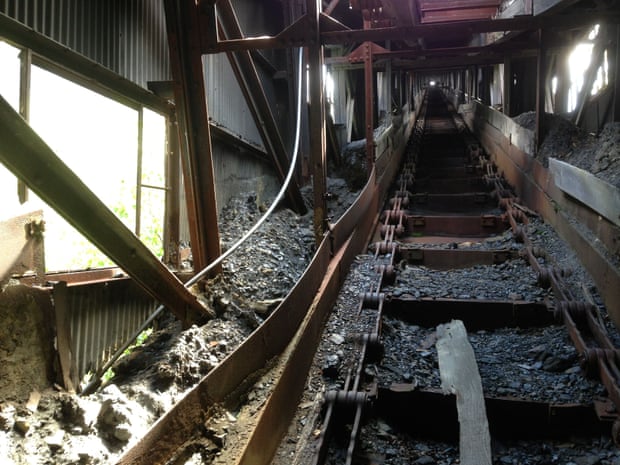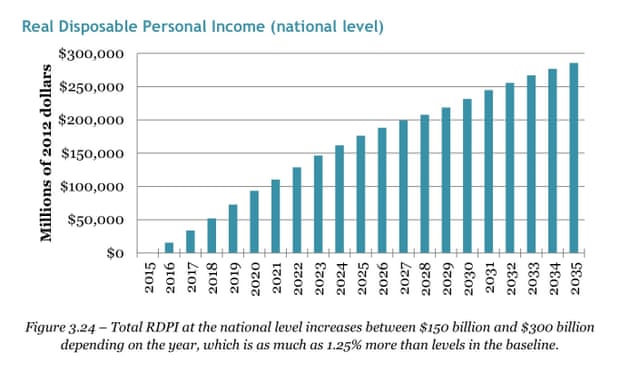Endorsing the Paris Agreement is Trump’s best opportunity for a big win
Posted on 30 May 2017 by Guest Author
There is only one part of President Trump’s agenda with real opportunity for a big win, right now, and that is infrastructure. And the Paris Agreement—the strongest ever signal pointing toward transformational infrastructure investment—is the only way to mobilize the capital necessary to get to that big win.
The common misunderstanding about the Paris accord is its impact on business and investment. Opponents fret about costs and economic change, but achieving the Paris Agreement’s goals will unlock capital investment at a rate no other policy initiative can match.
Here’s why:
- Right now, an unprecedented amount of actual wealth is “sitting on the sidelines,” awaiting the next wave economy—the transformational moment of world-building investment potential.
- More than $8 trillion tied up in negative yield bonds, along with another $5 trillion in corporate cash holdings, are waiting for a go sign. All that capital is looking for reliable growth and secure returns.
- Climate-resilient investments, high-efficiency new energy technologies, and services that build value in local communities, hold far more growth potential than any old-style industrial production standards.
- The International Monetary Fund estimates that $5.1 trillion per year in direct and indirect assistance to high-carbon energy is not only a waste of public resources, but qualifies as “destructive spending” that undermines value across whole economies.
- The opportunity to move that money into the building of a new economy of sustainable prosperity open to all is what the Paris Agreement is designed to activate.
Having overseen major building projects in his business career, President Trump has said the cost benefits of energy efficiency are clear to him. Energy efficient infrastructure will not only mobilize capital and add to GDP; it will activate major new property investment opportunities, create a new kind of flexible property market, and revitalize credit and banking.

Energy efficient infrastructure includes buildings that produce, store and manage their own energy. Photograph: Wikimedia Commons
The global policy arena for climate-smart finance goes by the short-hand “unlocking the trillions.” Imagine tens of trillions of dollars currently not creating any jobs becoming active, moving through a resurgent economy, and funding a sustained expansion of local hiring.
Twenty-two Republican senators recently signed a letter urging withdrawal from Paris Agreement, citing aim to avoid “significant litigation.” The litigation argument may backfire, because their letter appears to recognize the legitimacy of the federal lawsuit brought by young people against the government for insufficient action to address climate change. It is also worth noting that every one of these senators’ states will fare better if the Paris Agreement succeeds.
No one understands the boom-and-bust cycle of extractive industries better than the people whose communities did the extraction, and then saw the industry leave. In Pennsylvania, West Virginia, Kentucky, and Wyoming, you can visit isolated coal communities that have had zero GDP within city limits since the coal industry closed up shop and left.

Inside the Huber Breaker, a coal breaker that shut down in 1975. The town of Ashley is still working to rebuild its economy four decades later. Photograph: Joseph Robertson
All economies evolve. Economies designed not to—single-function economies—struggle more than others as the world speeds ahead with the adoption of new technologies and business models. Coal communities’ economic problems weren’t created by the Paris Agreement and related policy initiatives, but they can be solved by them.
The power of the Paris Agreement is twofold:
- It integrates all nations into this global effort, which would otherwise fall only on industrial nations like the United States.
- It recognizes the sovereignty of the United States, and of all nations, to choose their best path to a climate-smart economy.
It offers maximum overall benefit with minimum national or local economic risk. It aims to awaken that sleeping investment capital and shift every nation’s economic growth strategy toward the logic of American entrepreneurial innovation.

For many communities across Appalachia, tourism, farming, and other engines of locally rooted economic expansion promise a better future than coal development. The Paris Agreement motivates investment into more sustainably prosperous local economies. Photograph: Mountaintop Removal Road Show (left frame), Joseph Robertson (right frame)
For extraction-focused communities, the right policy response means the ability to capture investment for other kinds of economic activity. Some may go to new energy-sourcing technologies and entrepreneurship, others may become known as cultural or agricultural hotspots.
A simple fee on carbon fuels, with a 100% dividend to all households, would allow people living in coal communities to use increased month-to-month incometo generate entirely new Main Street economies, with new businesses and new jobs, based on local needs, talents, and priorities. A coal industry executive once told me:
Those carbon dividends are the first economic survival strategy I have ever heard of for the communities I have lived and worked in my entire life.

According to Regional Economic Models, Inc., a steadily rising carbon dividend would steadily improve Real Disposable Personal Income across the U.S. More at: citizensclimatelobby.org/remi-report Illustration: Regional Economic Modeling, Inc.































 Arguments
Arguments






























Economies constantly change, and this is both exhilarating, and benenficial overall, and also frightening, creating some dislocation, job pressures, and some challenges. For example fracking for gas has decimated the coal industry, right at the same time the climate issue has emerged that is also putting pressure on coal. These are the harsh realities, very hard on people, yet they are driven by capitalism, free markets, and technology, things we mostly all say are good things and they are generally good things surely? Isn't this the so called creative destruction of capitalism?
There are various ways of responding to all this. Trump is making the choice to go backwards and ignore market forces, and try to somehow preserve coal. This goes in the face of market forces, and is very state top heavy. Remember how Venezuela become so dependent on one export industry of oil, with a lot of state support for this industry, and got into huge trouble when the price collapsed. Part of this was the inflexibility of their state owned oil system, but Trump is just showing another similar form of inflexibility and is ignoring the fundamental facts about capitalism.
Of course Trump is also in total denial about the reality of climate change.
Another response to changing technology and changing environmental pressures is to help communities and ordinary people that are left behind with change. This is a more sensible idea to me and better use of government and tax money, than subsidising old industries past their use by dates, with an extended version of crony capitalism, that just tranfers public money to people who are already rich.
One of the desperate problems we have is in theory people that lose jobs due to technology change should "move to where the jobs are" but this is never so easy. People from very close community attachments. These communities may benefit from some help. As the article says, a carbon tax may help these communities branch out into new industries, renewable energy, or at least gives them money to relocate to other cities, and other options.
But you come up against the Republican antipathy towards taxes or government initiatives to help people. This leaves Trump and his alternatives of isolationism, trade protectionism or subsidising / protecting the industries of the past and ignoring environmental threats. It's a stark choice, either accept and adapt to change with some government help, or go back and hide in the past, adopt protectionism, bury your head in old industries, and ignore current realities.